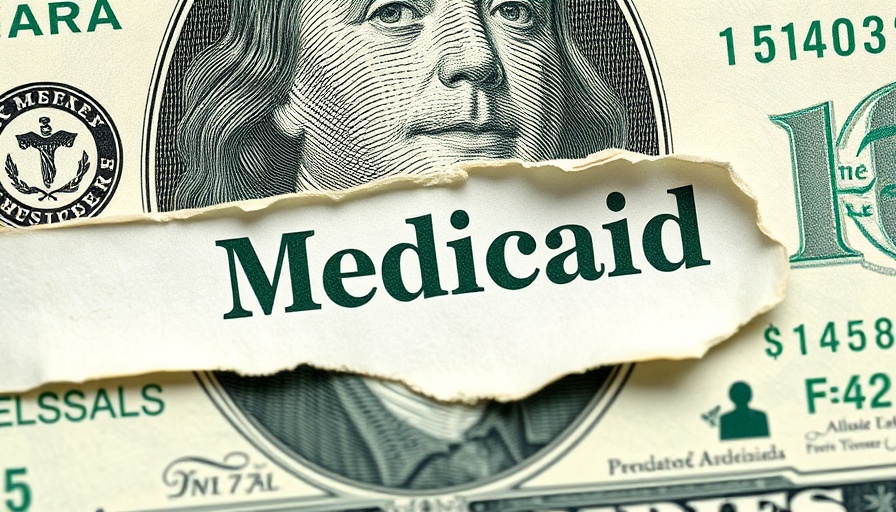
Understanding the Stakes: Medicaid Funding Cuts
Across the United States, hundreds of advocacy groups are raising alarms over potential cuts to Medicaid, warning that such reductions could devastate the nation's social safety net. The House Republicans recently passed a budget proposal aimed at finding $880 billion in cuts, with Medicaid seen as a likely target. In a critical letter directed to Senate Majority Leader John Thune, these organizations outlined how cuts to Medicaid could adversely impact millions of Americans relying on this crucial program for healthcare access.
Why Medicaid Matters: A Safety Net for Millions
Medicaid, alongside the Children’s Health Insurance Program (CHIP), serves over 80 million people in the U.S. The significance of this program cannot be overstated; it provides essential health services to low-income families, the elderly, and individuals with disabilities. The potential cuts threaten not just access to medical care but also push states toward difficult decisions to reduce enrollment and slash payments to healthcare providers, particularly in rural areas where the program's utility is critical.
Economic Ramifications of Medicaid Cuts
Research indicates that cutting funding for Medicaid could have devastating economic consequences. The Commonwealth Fund has projected that such cuts, coupled with reductions in food benefits from programs like SNAP, could lead to a decrease in state economic growth, resulting in over one million job losses nationwide in the coming year. This could exacerbate the challenges faced by families already struggling, making it increasingly difficult for them to maintain their quality of life.
The Political Landscape: A Double-Edged Sword
While some lawmakers advocate for reducing Medicaid spending by targeting fraud and waste, the reality is that any cuts will directly impact vulnerable communities. The advocacy groups stress that Medicaid operates on a tight budget, and substantial cuts may not only remove coverage for many but also strain years of progress in healthcare access. Lawmakers might find constituents in rural areas—who heavily rely on Medicaid—concerned about the potential loss of services if cuts proceed.
Take Action: Stay Informed and Advocate for Change
Understanding the implications of Medicaid cuts is vital not just for those directly affected but for all consumers concerned with maintaining health equity across the nation. Engaging in advocacy and ensuring your voice is heard can help safeguard this essential social program. Keep informed about ongoing legislative discussions and consider supporting organizations working to protect healthcare access for all.
 Add Row
Add Row  Add
Add 




 Add Row
Add Row  Add
Add 



Write A Comment